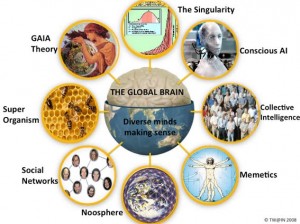Panarchy is “a useful way of thinking about cross-scale dynamics in complex adaptive systems.” Source
Panarchy, in modern terms, is both an emerging theory of local to global relations spanning all current disciplines (e.g. economics, political science, sociology), and a public intelligence concept that posits non-violent collective intelligence, with access to all true cost information, as the prevailing form of governance from local to global.
Panarchy is strongly associated with the concepts of agility at the individual respondent and collective intelligence (crowd or swarm) levels, the only means of achieving resilience that is inherently stabilizing.
Panarchy is the logicial end-state for Advanced Cyber/Information Operations, ultimately achieving transparency, truth, and trust by connecting dots to dots, dots to minds, and minds to minds, in a seamless sustainable manner.
Panarchy, to be effective, requires feedback loops with integrity (the absence of corruption, data pathologies, or information asymmetries).
Continue reading “Panarchy-Not Anarchy-Future of Global Governance”






